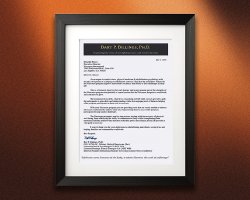Baby Boomers More Prone To Addiction Than Ever

The sixties were a time of revolution–the end of the Civil Rights Movement, the landing of the first man on the moon, the rise of feminism and the anti-war movement. Another part of the cultural upheaval was the dissemination of drugs–a revolution with a darker outcome. Today, the baby boomers continue to encounter addiction as a new wave of drug abuse hits their generation.
Seniors are being admitted to Emergency Rooms for drug abuse in alarming numbers across the nation. In fact, the National Institutes of Health are so concerned that they issued a consumer alert about the dangers of drug abuse on its website NIHSeniorHealth.gov, the first time in its history. These are parents and grandparents being treated for cocaine, heroin and marijuana reactions.
Prescriptions for Addiction

Besides illicit drug use, boomers are finding themselves addicted to prescription drugs—often unexpectedly so. Opioids such as Oxycontin, Percocet, and Vicodin have extremely high rates of addiction. Seniors suffer from a variety of chronic conditions, including osteoporosis, high blood pressure, sleep problems, and other issues that increase the chances of injury and also raise the demand for medication. A boomer may be prescribed sleep medication for insomnia and find himself addicted three weeks later. In fact, the average man over age fifty takes a total of four prescriptions.
Older bodies are particularly susceptible to addiction because their metabolism is slower and therefore less able to break down the drugs in their system. This is another reason that overdose is more dangerous for seniors.
Besides becoming inadvertently addicted, boomers may rely on drugs or alcohol to relieve them of emotional pain associated with the losses that come with old age. Loved ones may be dying; they may be going through a divorce; they may lose their job; they may have a hard time dealing with their children moving away.
A Drug Generation
Experts believe that baby boomers may have a harder time with drug addiction than others because of their previous experience with drugs. Many learned to deal with life problems through escape, by numbing and drowning out their sorrows. Those who have experienced the high of LSD or the rush of heroin may find it easier to return to that place when things get hard.
Drug addiction doesn’t end with the cessation of drug use. An addict may fight his addiction and be able to move on to function in life, only to find himself craving the drug decades later. Why?
Research demonstrates that drugs can store in the fatty tissues of the body and remain there even after drug use stops. They may lay dormant for years before becoming dislodged and re-entering the bloodstream. A former drug user may even find himself reexperiencing the effects of drugs years after his partying days.
This is where Narconon is unique. With its precise technology using nutrition and exercise, the New Life Detoxification helps remove these drug residues from the body so an addict can be freed from the effects of past drug use.

Narconon does this through the use of a dry heat sauna that helps users to sweat out residues from the body that are left by drugs. This is done as a very specific program in conjunction with vitamins, exercise, and a proper diet.
The mental and emotional aspects of addiction are also addressed through the rest of the Narconon program, including a series of life skills courses that give the person the tools they need to create their new sober life.
Contact us if you have a loved one who needs help with addiction.
Source:
http://www.forbes.com/sites/carolynrosenblatt/2012/10/29/the-scary-trend-of-boomer-addiction/


 ®
®